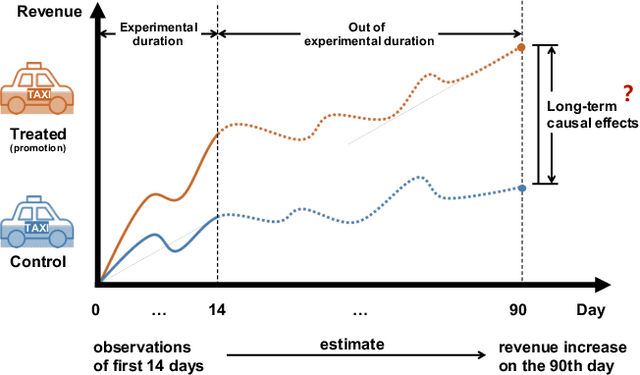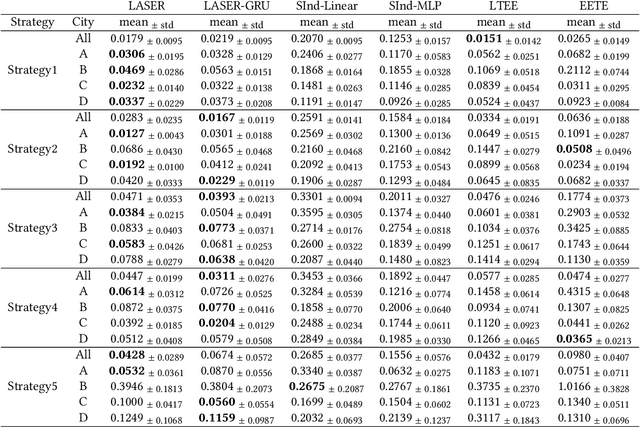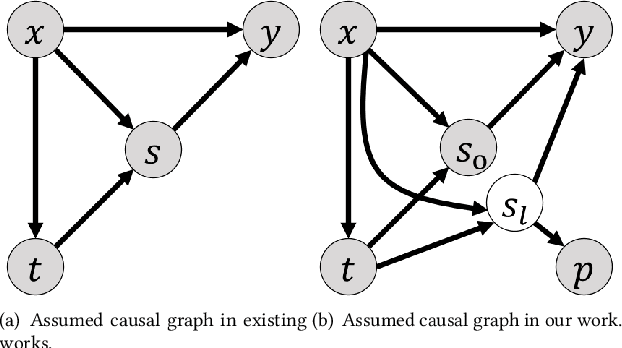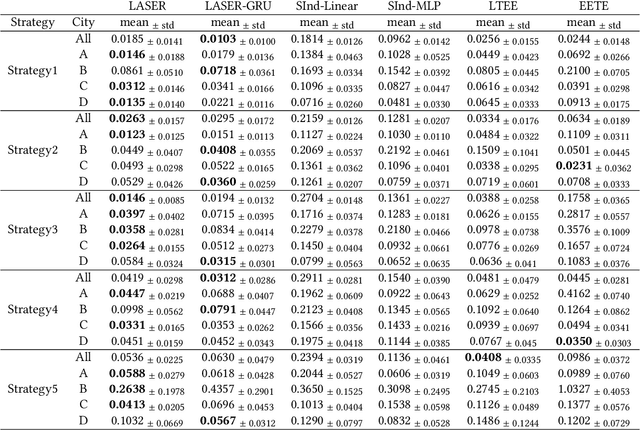Long-term Causal Effects Estimation via Latent Surrogates Representation Learning
Paper and Code
Aug 09, 2022



Estimating long-term causal effects based on short-term surrogates is a significant but challenging problem in many real-world applications, e.g., marketing and medicine. Despite its success in certain domains, most existing methods estimate causal effects in an idealistic and simplistic way - ignoring the causal structure among short-term outcomes and treating all of them as surrogates. However, such methods cannot be well applied to real-world scenarios, in which the partially observed surrogates are mixed with their proxies among short-term outcomes. To this end, we develop our flexible method, Laser, to estimate long-term causal effects in the more realistic situation that the surrogates are observed or have observed proxies.Given the indistinguishability between the surrogates and proxies, we utilize identifiable variational auto-encoder (iVAE) to recover the whole valid surrogates on all the surrogates candidates without the need of distinguishing the observed surrogates or the proxies of latent surrogates. With the help of the recovered surrogates, we further devise an unbiased estimation of long-term causal effects. Extensive experimental results on the real-world and semi-synthetic datasets demonstrate the effectiveness of our proposed method.
 Add to Chrome
Add to Chrome Add to Firefox
Add to Firefox Add to Edge
Add to Edge